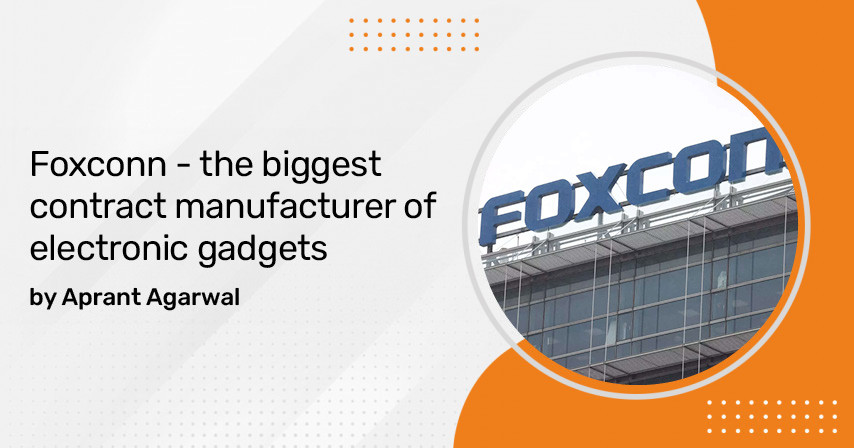Foxconn - the biggest contract manufacturer of electronic gadgets
Foxconn is the biggest contract manufacturer of electronic gadgets boasting a revenue of nearly $200 billion in 2023 and ranking at the 20th spot in the 2023 Fortune Global 500. Some of the worth-mentioning products manufactured by Foxconn include BlackBerry, iPhone, Nokia devices, and Google Pixel devices, just to name a few.
Expansion in India
- Foxconn is investing billions to broaden its manufacturing base in India. It aims to set up new greenfield facilities, increase tie-ups with Indian manufacturers, and expand the existing facilities and product portfolio.
- Foxconn began manufacturing Nokia products in Chennai in 2006. In 2017 it started manufacturing iPhones in Sriperumbudur (a Special Economic Zone - SEZ). An SEZ is an area (within a country) treated as a foreign territory for tax purposes. It has different commercial and trade laws to promote investment, manufacturing, trade, and economic growth.
- With an increased demand for iPhones coupled with Apple’s growing interest in India, Foxconn’s expansion plans will receive support. It is also partnering with HCL to set up a chip packaging and testing facility and the investment amount is nearly $37 million.
- Foxconn is also planning to dive into ICT (information and communication technology), EV (electric vehicles), energy, and digital health sectors.
3+3 Growth Model
The 3+3 growth model of Foxconn focuses on 3 industries and 3 technologies:
- 3 Industries: EVs + Digital Health + Robotics
- 3 Technologies: Artificial Intelligence + Semiconductors + Next-Generation Communication
This growth model signals that Foxconn aims to move from a contractual electronics manufacturer towards a holistic technology solutions provider.
Foxconn’s Efforts
- Energy: It is looking to invest in batteries and is coming up with a Battery Energy Storage System (BESS) plant in Tamil Nadu.
- ICT Products: Besides iPhones, the company plans to manufacture iPads and AI servers. Yuzhan Technology (a subsidiary of Foxconn) has invested Rs. 13,180 crore in assembling smartphone display modules.
Seeing the company make such strides, states such as Telangana and Andhra Pradesh are offering incentives for the ICT giant to make industrial parks and townships (‘Foxconn City’). Moreover, these strategies and offerings are in line with the ‘Make in India’ initiative. All this complements the PLI (Production-Linked Incentive) scheme wherein 14 sectors (including Mobile Manufacturing and Specified Electronic Components, and Electronic/Technology Products) receive the necessary production support.
An Optimistic Future
Foxconn’s success in the Indian market would depend on a host of factors:
- It must focus on developing a holistic strategy that focuses on local manufacturing, employee welfare (especially as there have been concerns regarding the same), and environmental sustainability.
- It needs to invest in the intellectual development of its employees by providing them with education and on-the-job training.
- Foxconn must not neglect environmentally sustainable practices and a safe working atmosphere for its employees.
A Lesson for Future Managers
- Strategic Diversification: Managers can explore expanding into emerging markets or diversifying their product lines to ensure sustained growth.
- Leveraging Incentives and Infrastructure: Taking advantage of government schemes, such as SEZs, can lower operational costs and improve profitability. Identify and utilize local, regional, or international incentives to optimize cost structures and encourage investment.
- Long-Term Vision: Building greenfield facilities and forming tie-ups demonstrates a focus on long-term growth rather than short-term gains. Managers should plan for sustainable business growth by investing in infrastructure, innovation, and partnerships that align with future goals.
- Local Partnerships: Partnering with local manufacturers enables shared expertise, cost-sharing, and faster entry into markets. Managers should prioritize building strategic alliances and partnerships to strengthen supply chains and expand business operations.










